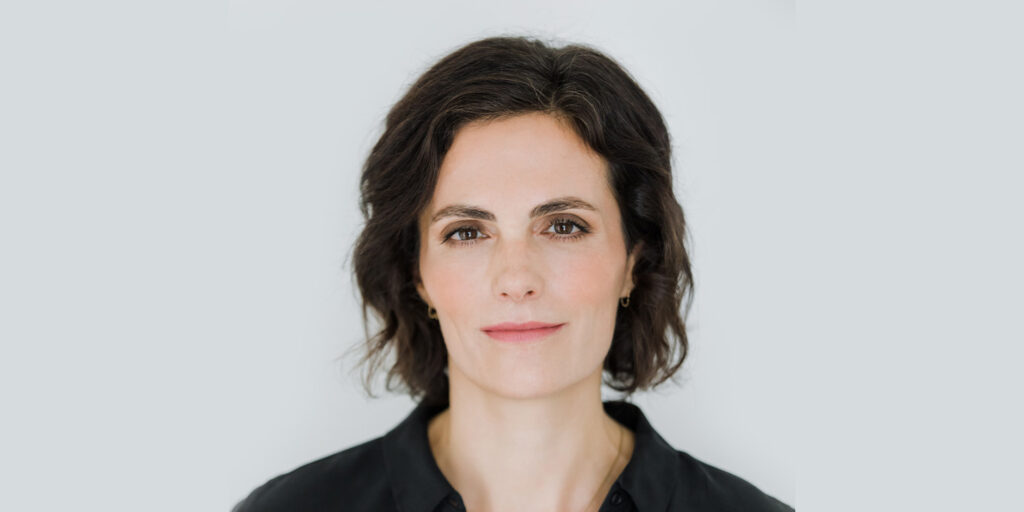We sat down with Annabelle Delorme, a 1st Formations customer and, more importantly, a business owner with a wealth of experience in leadership coaching.
Ms Delorme is the founder of Annabelle Delorme International, a boutique consultancy for personal growth and leadership development. As an executive coach, she is also known for her commitment to shaping a new paradigm for women in leadership and life.
Confidence is a complex and multifaceted topic that affects everyone, regardless of how poised or self-assured they may appear. Understanding confidence requires recognising its dynamic nature: fickle and highly context-dependent.
“Even those who seem most confident experience moments of self-doubt. One day, you might feel entirely sure of yourself, only to find that the next day brings unexpected uncertainty”, says Delorme.
Confidence is dynamic and relational, meaning it can significantly change depending on the people around you.
“For instance, when you are with those who know, support, and cheer for you, your confidence tends to soar. These are the people you trust wholeheartedly, and their presence can make you feel invincible. On the other hand, being around critical individuals or those who make you feel judged can diminish your confidence. These might be people you don’t know well, people very different from you, or those who hold positions of power” explains Delorme.
This relational aspect of confidence is particularly insightful. Confidence levels can change at any moment, influenced by social context.
Another exciting aspect of confidence is the discrepancy between external perceptions and internal feelings, says Delorme. “Many successful women I work with report that their colleagues and friends describe them as confident and desire similar confidence. However, these women often feel this external perception does not match their inner experience. They frequently doubt themselves, despite appearing confident to others.”
Identifying confidence blocks
To navigate the complexities mentioned above, developing self-awareness is crucial.
Delorme says that the more we understand our confidence dynamics, the better equipped we are to find tools and strategies that help us be our best selves.
- Women founded a record number of businesses in 2023. Here’s why.
- It’s never too late to start your own business – here’s why
“Reflecting on specific questions can help identify your confidence blocks and boost your self-assurance”
Below are the key points to consider when reflecting on our confidence blocks, according to Delorme:
When do you feel less confident?
Reflect on the times when your confidence dips. What is happening during these moments, and how do you feel? Identifying these situations is the first step towards understanding your confidence blocks.
What triggers impact your confidence?
These triggers could be people, places, environments, specific scenarios, or even a lack of preparation. By pinpointing these triggers, you can start to anticipate and manage them better.
What stories do you tell yourself when you feel less confident?
Your inner critic often uses specific phrases or narratives that undermine your confidence. Recognising these patterns can help you challenge and change them.
How do these stories stop you from taking action?
Understanding how your inner dialogue prevents us from acting can reveal the barriers we need to overcome.
Identifying confidence builders
Once we have identified the factors that negatively impact our confidence, it’s equally important to reflect on what boosts it, says Delorme.
Here are some of the questions she suggests we consider when reflecting on what builds us up:
When do you feel most confident?
Think about the times when you feel sure of yourself. What’s different during these moments? What’s happening, and how do you feel?
What boosts your confidence?
Certain people, places, environments, music, clothing, habits, or specific scenarios might enhance your confidence. Identifying these elements can help you incorporate them into your routine.
Who in your support system sees you as your best self?
Utilise the people who believe in you and see your strengths. Their support can be a valuable resource when you need a confidence boost.
Do you know your strengths, and do you use them daily?
Recognising and leveraging your strengths can significantly enhance your confidence. Make a conscious effort to use them in your daily activities.
Conclusion: we have control
Confidence, while complex, can be managed and improved with self-awareness and strategic actions.
By reflecting on when we feel less confident and identifying the triggers and narratives contributing to these feelings, we can start to address and overcome our confidence blocks.
Similarly, understanding what boosts our confidence and incorporating these elements into our lives can help us maintain self-assurance.
Delorme concludes that confidence is not a static trait but a dynamic one that can be nurtured and grown with the right tools and mindset.
Please note that the information provided in this article is for general informational purposes only and does not constitute legal, tax, or professional advice. While our aim is that the content is accurate and up to date, it should not be relied upon as a substitute for tailored advice from qualified professionals. We strongly recommend that you seek independent legal and tax advice specific to your circumstances before acting on any information contained in this article. We accept no responsibility or liability for any loss or damage that may result from your reliance on the information provided in this article. Use of the information contained in this article is entirely at your own risk.












Join The Discussion
Comments (2)
Excellent article! The tips you provided for being a better business owner will be helpful for better management of my own tax compliance UK business.
Thank you for your support, David.
Kind regards,
The 1st Formations Team